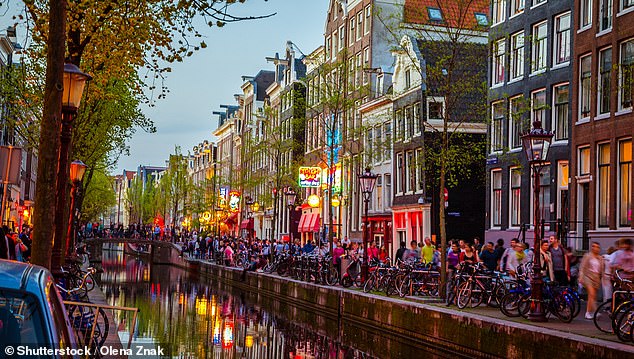Amsterdam has banned the construction of new hotels anywhere in the city as part of its latest tourism crackdown after launching a campaign to keep Britons away from the Dutch capital.
The local government announced in a statement on Wednesday that it wants to keep the city livable for residents and visitors, that is, without excess tourism.
It also set a new limit of 20 million for the maximum number of hotel overnight stays by tourists the city is willing to accept each year.
As part of the fight against mass tourism, a new hotel can only be built in Amsterdam if another hotel is closed and the number of sleeping places available in the city does not increase. and whether the new hotel will be better, for example more sustainable.
However, there will be some exceptions to this policy, Mayor Femke Halsema said in a statement.
The rule does not apply to new hotels that have already obtained a permit.
Amsterdam has banned the construction of new hotels as the city cracks down on mass tourism.
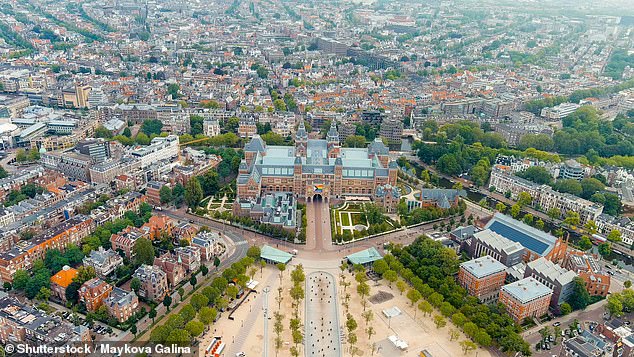
The city aims to keep the number of tourist overnight stays below 20 million annually
Despite seven years of stricter policies toward new hotels, there are currently two dozen still in the planning stages.
The city has been actively trying to limit the number of tourists, which number in the millions per year, primarily by discouraging sex and drug-related tourism in the red light district.
There was already a ban on building new hotels in many areas of the city, but due to the new ban, all of Amsterdam will become a “no-go zone” for new hotels.
This decision was made in a bid to limit the number of tourists visiting this popular holiday spot.
The city aims to keep the number of tourist overnight stays below 20 million a year.
According to the Holland TimesIn 2023 alone, there were more than 20.6 million hotel stays, not counting people who stayed in vacation homes, B&Bs or cruise ships.
The new limit of 20 million is the result of a petition signed by 30,000 Amsterdam residents calling for stricter measures in the tourism sector.
“However, despite the strict hotel policy, new hotels are still being built and several new hotels are being added,” the city stated.
“This is due to projects that were already authorized,” as well as locations that are still zoned for hotels.
‘The number of hotels still in projects of this type has decreased in recent years. When the accommodation policy was established in 2017, an inventory had 58 initiatives in progress. Currently there are 26 ‘, he added.
This comes after the Netherlands launched a “digital discouragement campaign” last year asking young Britons to “stay away” if they planned to visit the city for its infamous red light district and cafe culture. cannabis.
This included a limit on the number of flights landing at Schiphol, partly citing environmental reasons and trying to improve the lives of the city’s beleaguered residents.
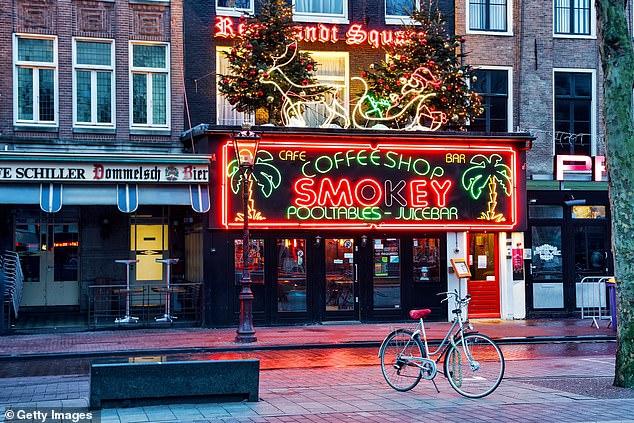
The Netherlands is also seeking to change its image as a hub for sex and drugs.
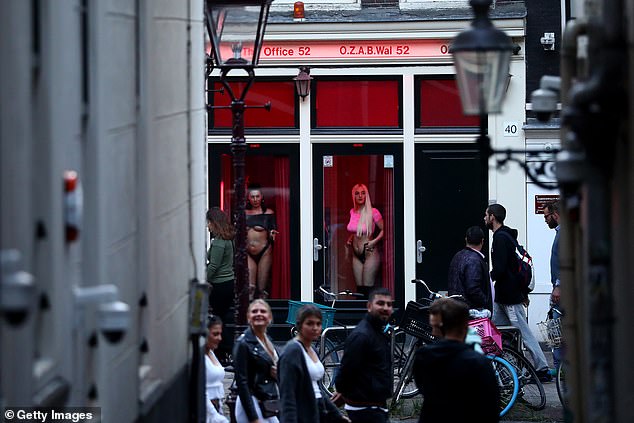
Prostitutes behind the windows in the Red Light District on July 1, 2020 in Amsterdam
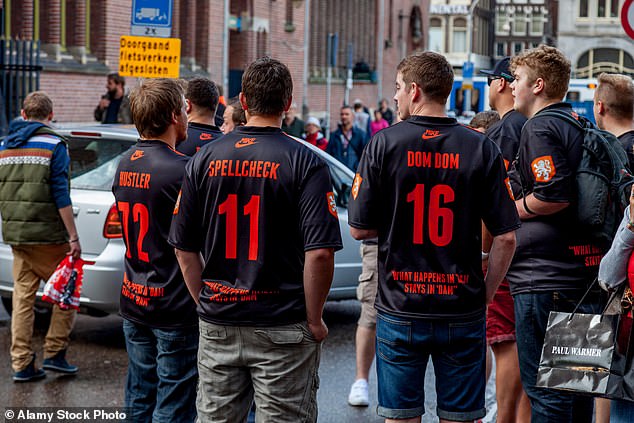
Amsterdam launched its campaign in March, targeting Britons aged 18 to 35.
The figures were presented at the World Travel and Tourism Council (WTTC) in October by ForwardKeys, which studied booking data for the industry.
Olivier Ponti, vice president of insights at ForwardKeys, said: ‘The Netherlands has put a limit on air connectivity. Obviously, that is an obstacle and they have launched demarketing campaigns asking people to stay home.”
The Netherlands is also looking to change its image as a sex and drugs hub and has even proposed a ‘mega brothel’ on the outskirts of Amsterdam to move sex work out of the centre.
The Netherlands’ tourism board was believed to be the first to stop actively promoting tourism when it made the decision to rebrand in 2019.
In March last year, the Dutch capital launched its deterrence campaign to discourage would-be sex and drug tourists from traveling to the city for short, disruptive stays.
It would issue special warnings to potential travelers when searching for terms like “Amsterdam stag party” or “Amsterdam pub crawl.”
“The campaign will start in Great Britain and will target men aged between 18 and 35,” Amsterdam city council said in a statement.
“This online deterrence campaign is aimed at annoying tourists who want to visit Amsterdam to “go crazy”, with all the ensuing consequences.”
The campaign, called “Stay Away”, will mean people see special warnings when they search for terms such as “stag party Amsterdam” or “pub crawl Amsterdam”.
It would be extended to “potential nuisance visitors from the Netherlands and other EU countries” next year, according to the statement.
Amsterdam also announced a ban on smoking cannabis in the Red Light District in February last year, along with tighter restrictions on alcohol consumption and earlier closures of cafes, bars and sex clubs.


